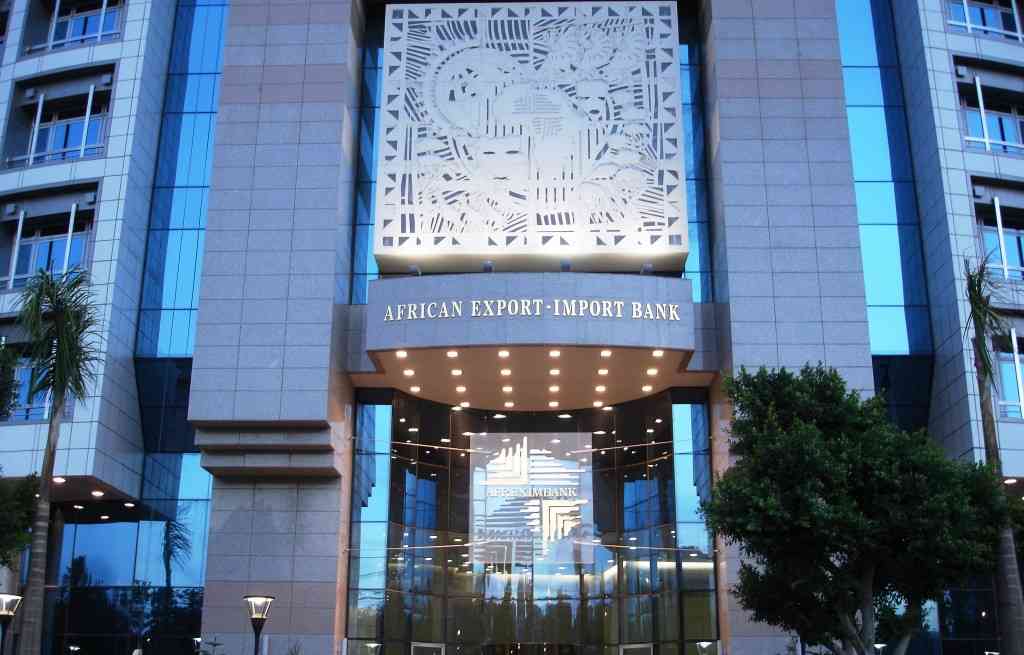
AN industry is a group of productive enterprises or organisations that produce or supply goods and services. In economics, industries are generally classified as primary, secondary and tertiary.
Primary industries are generally associated with agriculture and mining. Secondary industries are typically made up of manufacturing firms, which produce consumer and capital goods or raw materials for other businesses.
On the other hand, tertiary or service industries provide intangible goods, which they sell to consumers or other businesses. Service industries are present in both the private and public sectors.
There are various ways to classify services in government statistical analysis. This article will refer to the following five subsectors of services:
Professional business services (engineering, finance, research and development (R & D), marketing, legal, etc),
Human and social capital development (education and healthcare),
Hospitality and personal services (gyms, hairdressing, hotels, entertainment, etc),
Logistics and retail, and
- Industrial policies must include services sector
Keep Reading
Mass employment services, which are usually dominated by cleaning and security.
Industrialisation is a widespread re-organisation of an economy so that it transitions from reliance on basic agricultural activities, to more sophisticated (technologically driven) high-value processes, such as manufacturing and services.
Mechanisation and technological innovation are common characteristics of industrialisation.
The ultimate aim of industrialisation is to achieve rapid economic growth, which will then lead to better living standards for the industrialised society.
Industrialisation generally starts by moving unemployed and underemployed labour into more productive employment. For example, from small-holder agriculture to more rewarding and mechanised economic activities, such as mining, manufacturing, or services, which at least earn more income than subsistence farming.
Globally, most government policies aimed at improving a country’s level of industrialisation (industrial policies) are usually focused on supporting the manufacturing sector.
Historically, manufacturing has greatly benefitted from industrial policy through receiving the following benefits; subsidies, protections against imports (such as steep import tariffs), greater demand through government procurement of the manufactured goods, upgrading or revamping infrastructure, which certain targeted industries use, etc.
Obviously, governments set aside huge budgets for these industrial policies, which typically consume significant amounts of money. Some elements of industrial policy though, do not require direct funding with money.
Rather they require supportive government policies, which may include; reduced corporate tax rates (tax incentives), quick processing of licences and other types of permits, etc.
It is actually rare for policymakers to try to achieve improved industrialisation through creating industrial policies, which promote the growth of a country’s services sector.
In other words, industrial policy is usually focused exclusively on manufacturing. However, this must not be so because a careful examination can show that services are sometimes more beneficial to the economy than manufacturing.
They have their own strengths and can, therefore, complement manufacturing by providing benefits, which the manufacturing sector lacks. So, it is essential to regularly include services when designing industrial policies.
Why include services?
Services are critical to the operation of any economy. One of their main benefits is that they play a supportive role to the primary and secondary industries, such as agriculture, mining and manufacturing.
For instance, it would be impossible for agriculture to be nationally successful without the services of agricultural extension officers, reliable national logistical systems, efficient customs clearing personnel, who facilitate imports and exports, etc.
In manufacturing, companies regularly hire the services of engineers for maintenance, repairs, or advice on how best to design their production processes.
Even mining companies cannot do without security services and cleaners, who keep their premises secure, healthy and tidy. It is also important to note that as primary and secondary industries get more developed, they also tend to outsource most services, which are not a part of their core-business.
This is what has led to the development of independent and specialised service industries, which offer a range of unique services, such as professional services (management consulting, engineering, banking, etc), logistics, security, cleaning, etc.
Services are also responsible for the majority of an economy’s economic activity (GDP). The African Development Bank reports that in Zimbabwe, services made up as much as 55% of GDP in 2023.
This figure is much more than agriculture’s 12%, mining’s 13,2%, and manufacturing’s 11,2% contribution to GDP. It is obviously unfortunate that the formal services sector is much smaller than informal services, in Zimbabwe, due to the rapid informalisation of the economy since the economic challenges which emerged after the land reform of the year 2000.
In South Africa, the services sector contributes as much as 70% to total economic activity (GDP), whilst it is mostly formal. Informal services occupy a very small portion of South Africa’s economic activity, since the country’s economy is highly formal. In high-income economies, the contribution of services to GDP is even higher, sitting at an average of well more than 70%.
The dominance of services, as a portion of economic activity arises from changing demand globally, whereby people and businesses now significantly demand services, in some cases, much more than they demand goods (tangible products).
It is also a result of the maturing primary and secondary industries, which now focus on core activities, whilst they buy non-core activities (including services) externally.
Due to their significant contribution to GDP, services are also responsible for the majority of jobs in any economy. In South Africa, where data on such matters is easily available, services employ as much as 72% (or 11 million) of the total workforce. In terms of the world economy, as a whole, the data is even more striking.
Since 1995, services have accounted for almost all new jobs created, globally. On the other hand, even though global manufacturing has grown, through the years, it has not created new jobs, since 1995 but has lost jobs.
This is mostly as a result of powerful innovations in manufacturing, which have resulted in greater productivity and have displaced workers.
Consequently, since 1995 the portion of the global workforce working in services has increased from just below 40% of the total global workforce to about 50% by 2019.
Another benefit of having a vibrant formal services sector is that, formal services usually accommodate more small businesses and self-employed individuals than the formal agricultural, manufacturing and mining sectors.
This is largely because setting up a formal business in the services sector usually demands less capital requirements than doing so in other economic sectors, such as agriculture, manufacturing and mining.
Since data and research is more abundantly available in South Africa, it is sensible to make reference of the South African economy once more. In South Africa, of all registered small businesses, 60% operate in the services sector.
Also, among the registered self-employed individuals, almost all of them (85%) are in the services sector. The minimal capital requirements are a relatively low barrier to entry into the services industry.
Some services also offer opportunities to millions of low-skilled workers, who have zero or minimal educational qualifications. Such services include; cleaning, security, retail, etc. Since they are hospitable to poor entrepreneurs (with little capital) and low-level workers, services, therefore, help to include people who should have otherwise been marginalised economically.
Including marginalised and economically irrelevant people within an economy is critical, if an economy is to realise the goal of industrialisation (widespread use of technology-based economic activities within a country, which leads to higher incomes and improved living standards).
In East Asia (South Korea, Japan, Taiwan, China, etc), the path to industrialisation began with creating greater opportunities for citizens to migrate from small-holder farming into more mechanised and rewarding activities, such as light-manufacturing, construction and an array of urban services.
The transition from a dependence on agricultural activities to modern economic activities (industrialisation) was notably rapid in the aforementioned countries.
The point is that before a country becomes broadly industrialised, it needs to upgrade the economic contribution of most of its citizens, so that they transfer from unemployment or reliance on traditional agricultural activities, to more advanced technologies and earn higher incomes (wages, profits, etc).
In the context of Zimbabwe’s massive de-industrialisation after the year 2000, it will be essential to provide decent jobs to those, who are unemployed and the millions who are insecurely (with low wages and poor working conditions) employed in the informal sector, through making room for the formal services sector to thrive.
Formal services can provide a secure form of employment, which offers more decent wages and employment conditions for the country’s population.
In significant economies, wages and employment conditions in the formal services sector are equal to or even better than those in the manufacturing sector.
Once a greater portion of the local population is engaged in more sophisticated economic activities, it can then be easier for Zimbabwe to industrialise.
Branches of the services sector, such as education and healthcare, help to develop a nation’s human and social capital. Human capital refers to the skills and competences of people, who go through the education system.
These skills can be used to develop Zimbabwe or other regions of the world, depending on where locally-trained personnel eventually work. Social capital refers to the attitudes and behaviours which are needed in order to support a functional society (with limited crime, protests and other social and political upheavals).
Government investments in public healthcare services work to promote good social capital and minimise disgruntlement among citizens, who may feel neglected by the prevailing political system (the government of the day).
If a country develops its services sector in a superior manner, it can also export its services, and then generate both jobs and foreign currency, from that.
This means that a country’s hospitality and tourism, professional services (engineering, Information Communication Technology, management consulting, etc), education and healthcare, etc, can be utilised by foreigners, physically or through technological platforms, leading to greater foreign exchange revenues for the country and local businesses which offer them (the services).
Tutani is a political economy analyst. — tutanikevin@gmail.com










